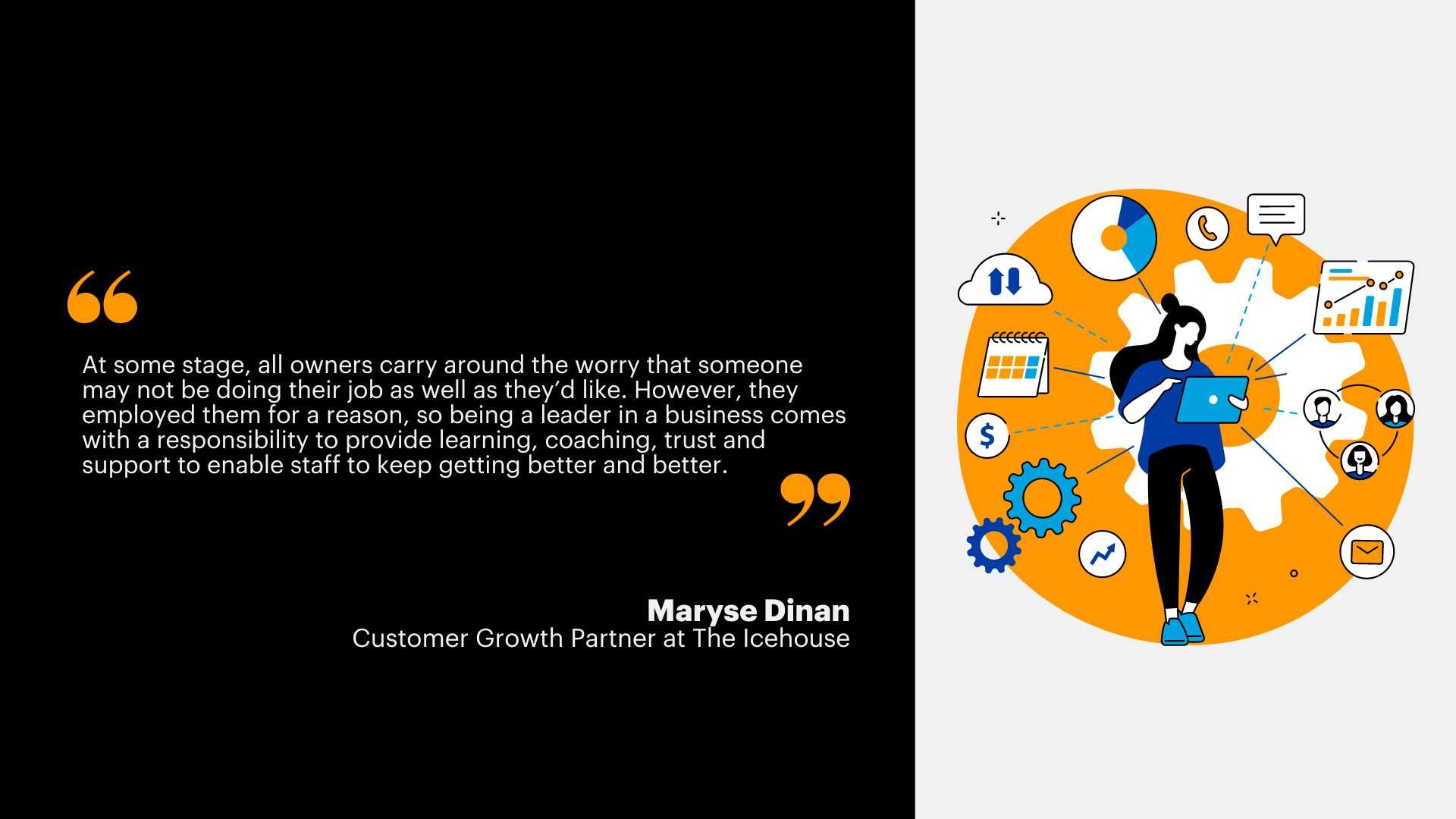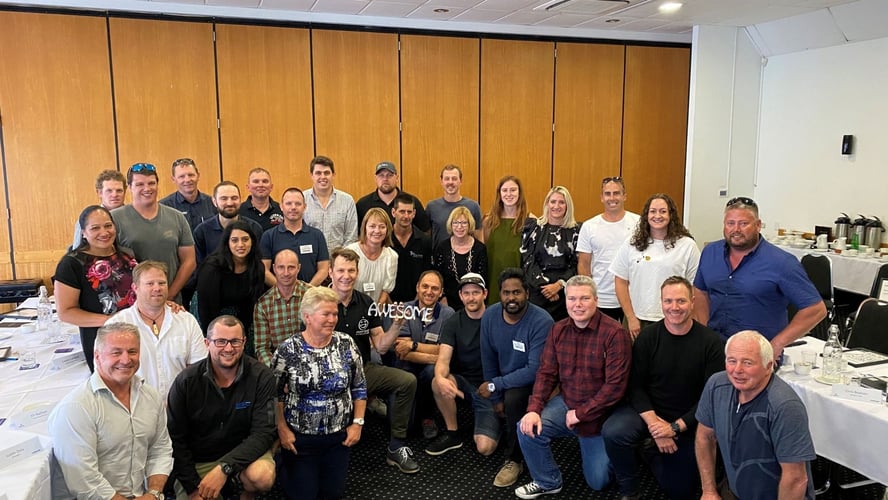
If you’ve ever uttered the words ‘I’m The Boss… I know best’, ‘… it’s easier if I do it, ‘… I don’t need help’ (part one of this two-part blog) then there might be a problem. We heard it at The Icehouse recently and it got us thinking how and why owners develop this mindset, what conclusions can be drawn, and also whether it can be a platform for positive change. 
Depending on the latest research piece you read, it’s no wonder owners ‘know best’. The majority of have an inclination, a desire, to want to do it all themselves and, as a result, end up taking on too much.
There are positives – it’s an attitude that may stem from an innate ‘can-do’ mindset, the fact that they enjoy hard work and are fully committed – but there are plenty of negatives attached, too. Looking deeper, does the owner have trust issues, do they find it hard to delegate or communicate, are they hiding the fact that they don’t know it all?
In our experience, and from what our alumni feed back to us, ‘knowing best’ can also accelerate burnout and fatigue, exacerbate mental health issues, contribute to underperformance and foggy decision-making, and close off attitudes to new ideas, which affect one’s ability to adapt.
It is hard to let go, especially if an owner has started the company from nothing and then all of a sudden they’ve got 10, 15, 20 people to look after. However, those people can play a huge part in supporting the owner.
“At some stage, all owners carry around the worry that someone may not be doing their job as well as they’d like. However, they employed them for a reason, so being a leader in a business comes with a responsibility to provide learning, coaching, trust and support to enable staff to keep getting better and better,” says Maryse Dinan, a Regional Lead for The Icehouse.
Walk in the employees shoes once in a while. How do they feel if you keep doing a job they know they could potentially do? ‘Trust’ should automatically mean that you don't have to worry – you only have to worry if people aren't performing. You’ve recruited people to do the jobs you can’t do, and it’s a false economy trying to fight that. If you don’t like doing paperwork, for example, then don’t do it. You have the people to do that.
“Once you understand that you don’t always know best, it opens you up to doing the stuff that really has that impact – tasks that you really enjoy doing. Why are you doing the $20 an hour work when you should be doing something that's way more impactful for your business.”
As James Galloway, Manager of O’Donnell Park Barging and a Leadership Development Programme and Owner Manager Programme (OMP) alumni says: “One thing I've learned is my way isn't the only way of doing things. I'm trying to do this as; I want to be able to paint a picture of where we're going, and let the guys build it with me, and set them up to succeed going, ‘Hey, this is what's happening today,’ ‘This is what you've got to achieve’, ‘What do you want to do with this area?’ and let the team come back. And a lot of times it works.”
“Go on OMP, because you know nothing about business,” says Tim Goom, founder and director of Goom Landscapes and another OMP alumni. “But you don't know about all the things you don't know – about tax, finances, and employee hiring and firing, and all the things you’ve got to do when you're in business.”
Anthony Gold, The Icehouse’s former Customer Growth Partner points out that taking your thinking back to the very beginning can be transformative and get the owner back on track.
“Does the business own you? Or do you own the business? When you say ‘I’m the boss’, what you're saying is you don't want to let go. That’s when we need to take a step back and ask yourself, ‘What made you start the business in the first place?’
“And once you register and redefine your purpose, the conversation starts to open up as to the reason why you keep saying that phrase, and it is usually around trust issues – they've been let down, invested a lot of time into leaders who’ve moved to another company, for example. It’s a natural pattern to regress into the role of doing everything.”
So many owners set up or buy businesses because they want the financial, personal and professional freedom. However, working 70 hour weeks and trying to do everything doesn’t sound like freedom.
“I had been in the ‘doing’ for so long. And because we were growing, I was stuck in the ‘No, no, I need to do this,’” says Jo McFadden, General Manager of PEP Worldwide NZ and another OMP alumni.
Jo’s OMP experience helped provide a framework for structural and thought change. “All the nuggets around people, people management, getting the right people on the bus, getting the wrong people off, how to act and catch things quickly or catch things fast [were invaluable].
“Sometimes we'd have sessions, and I'd come back and go, ‘Ah, That’s exactly what I do.’ And other times, it would just slowly filter in, and it wasn't until I'd reflect back and think, ‘Actually, that's all from OMP!’ It had a massive impact on me and a massive impact on the business.”
If this sounds familiar, then it’s time to pass on the trust, free yourself and build and inspire your team around you by turning ‘knowing best’ to ‘knowing you have the best’.
For information on programmes, workshops and business coaching services from The Icehouse, click here.
For more business ownership and leadership advice, check out more of our resources.
Icehouse Alumni? For exclusive content on Icehouse Central, register now.


